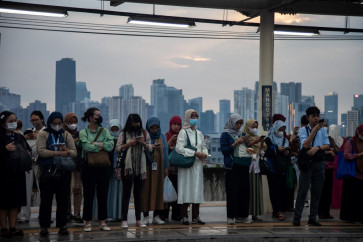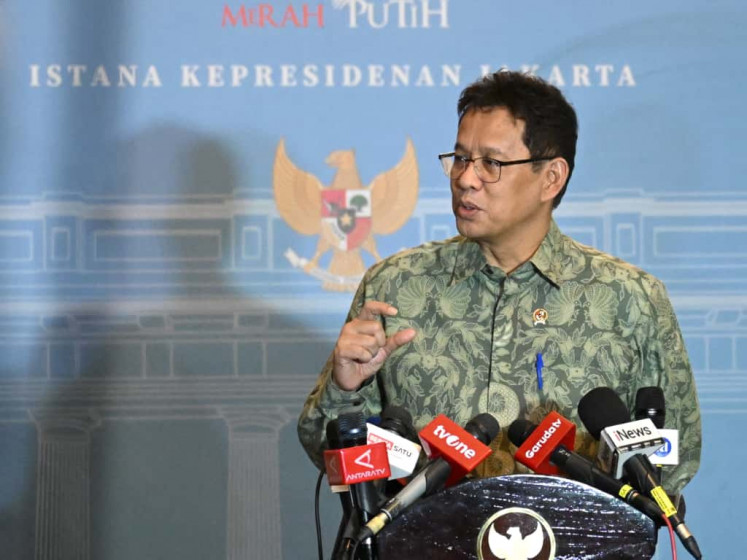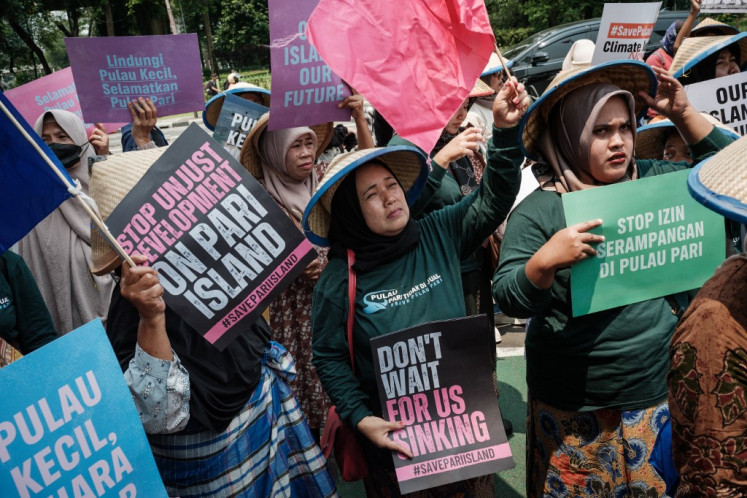Popular Reads
Top Results
Can't find what you're looking for?
View all search resultsPopular Reads
Top Results
Can't find what you're looking for?
View all search resultsImporters told to help reduce dwelling time
The Finance Ministryâs customs office has demanded that importers do their part in reducing the nationâs stubbornly long dwelling time at ports
Change text size
Gift Premium Articles
to Anyone
T
he Finance Ministry's customs office has demanded that importers do their part in reducing the nation's stubbornly long dwelling time at ports. The problem contributes to high costs of doing business in Indonesia and drew the recent ire of President Joko 'Jokowi' Widodo.
Importers should process their import licenses prior to their cargo arriving at ports and avoid treating ports as warehouses to stockpile cargo at cheaper rates, said the Finance Ministry's acting director general of customs, Supraptono. He added that dwelling time delays were mostly caused by importers' disobedience during pre-customs clearance.
Of the total average dwelling time of 5.5 days, 3.6 days are spent on pre-customs clearance, a process that involves layered procedures, as certain goods ' especially edible products ' must first receive verification from institutions, such as the Trade Ministry, the Agriculture Ministry, the Environment and Forestry Ministry and the Food and Drug Monitoring Agency (BPOM).
'The lengthy time during the pre-customs clearance process is caused by two factors: the fact that 51 percent of importers are still required to obtain prohibition and restriction permits [lartas] and the behavior of most importers, who deliberately prolong the licensing process so they can stockpile their cargo at the port,' Supraptono told reporters during a press conference on Tuesday.
Around 43 percent of importers are still processing their license more than three days after the arrival of their cargo, data from the directorate general show.
'We will encourage importers to utilize the pre-notification facility and submit papers in advance before their containers arrive at port to prevent the containers from staying too long at the ports, which affects the dwelling time,' Tanjung Priok Customs and Excise Office head Fadjar Donny Tjahjadi said.
Fadjar also said that a number of importers continued to stockpile their cargo at the port to spare them high warehouse costs, even after their licenses had been issued.
'We have proposed to port operators and port authorities to increase the stockpiling tariff, since the current tariff is much lower than the tariff charged by warehouses outside the port,' he said.
The Indonesian Importers Association (Ginsi) said in a statement that the business group was ready to cooperate with the government to reduce dwelling times, in exchange for better services from ministries and institutions in charge at the port.
On June 17, President Jokowi inspected the country's main port, Tanjung Priok in North Jakarta. The President was outraged to discover that the average dwelling time had reach 5.5 days ' higher than the targeted 4.7 days ' and vowed to sanction those responsible.
Dwelling time indicates the average length of time a container spends in a seaport terminal. Shorter dwelling times indicate a more efficient shipment process and lower logistics costs.
Separately, Transportation Minister Ignasius Jonan said the ministry would propose that Jokowi issue a presidential decree to appoint the ministry's ports authority as a coordinator for the inflow and outflow of containers.
Currently, 18 ministries and institutions have authority over the inflow and outflow process at seaports.
State-owned port operator Pelindo II president director Richard Joost Lino said that the lack of coordination between the ministries and institutions in charge at ports was the main cause of the high dwelling time, insisting that Pelindo II had provided adequate systems and facilities to support logistics chains.










